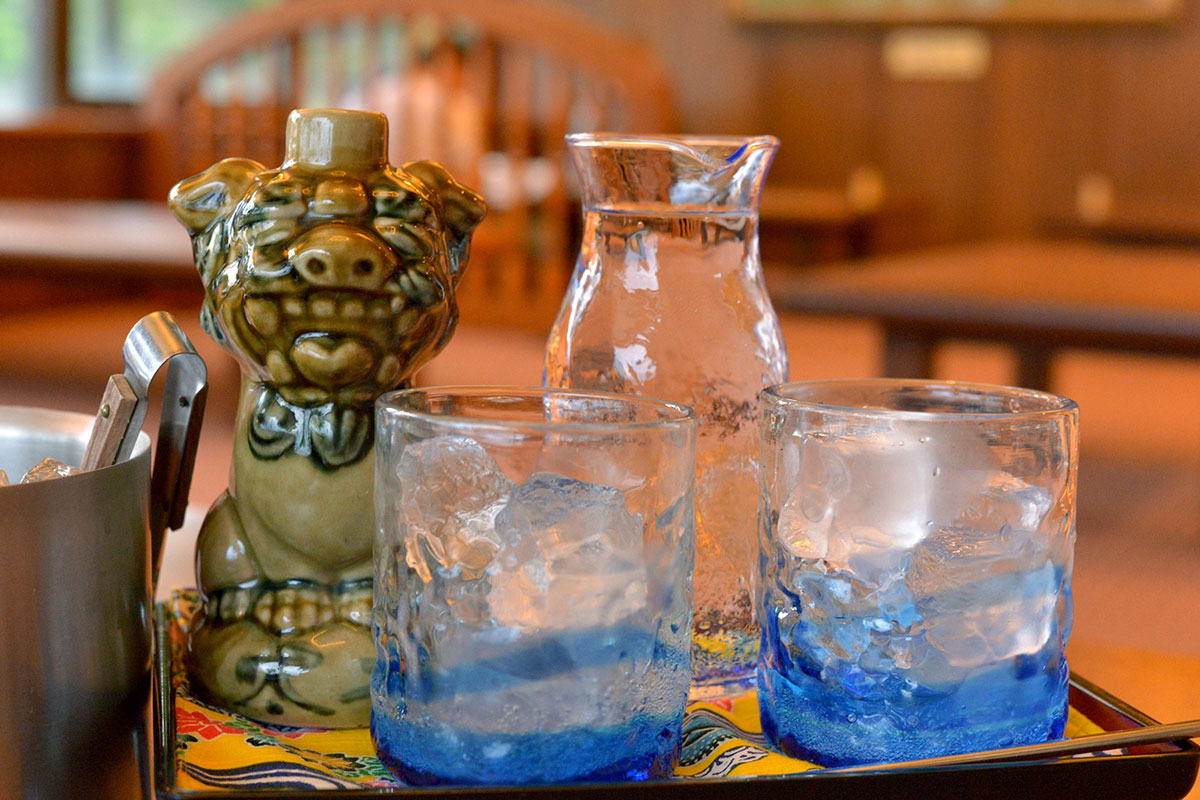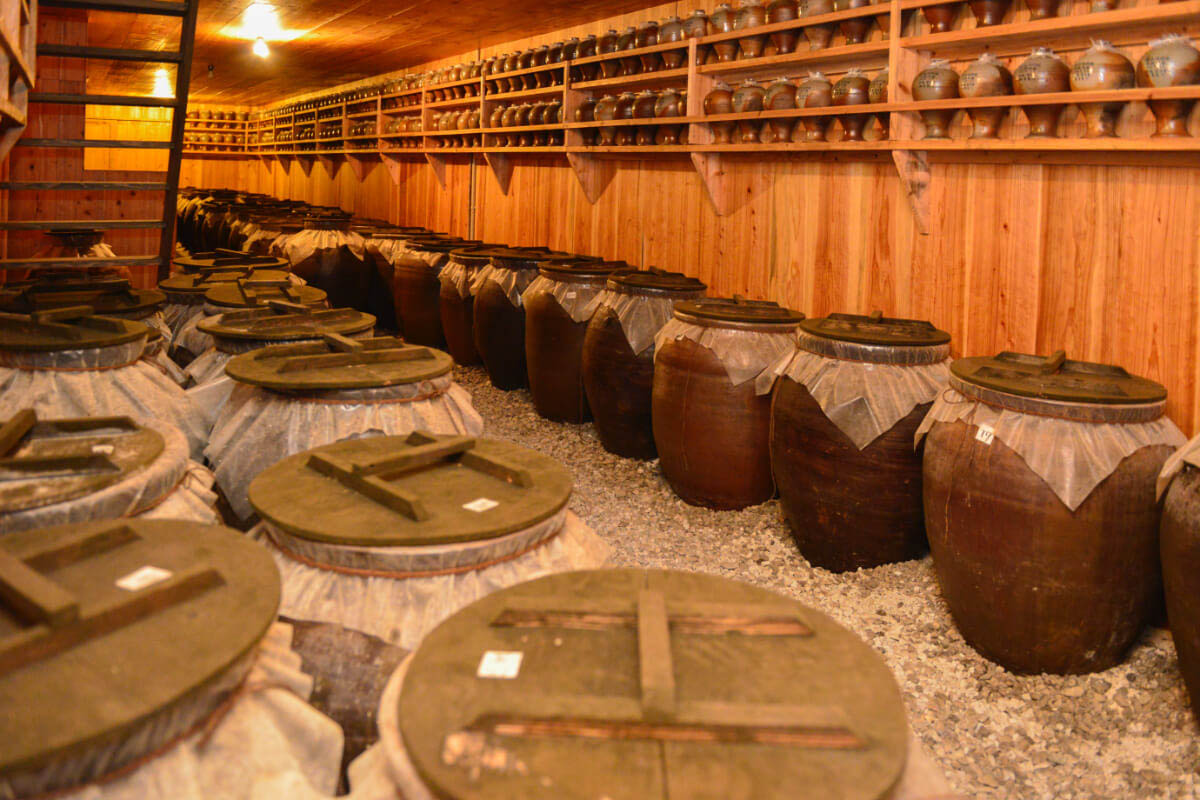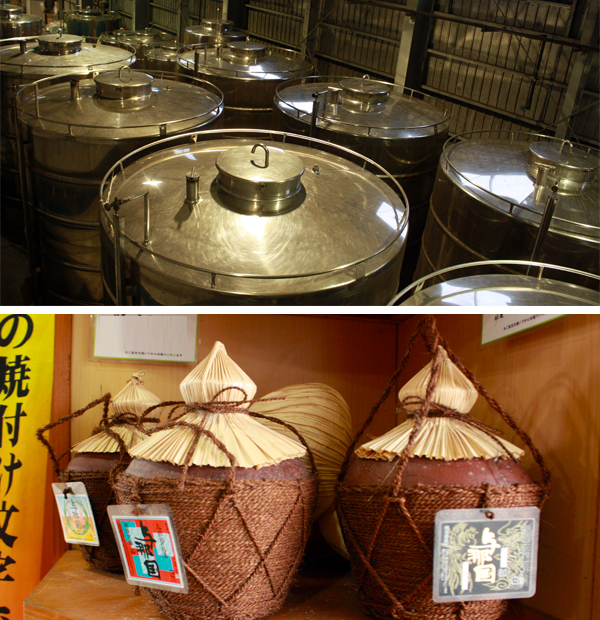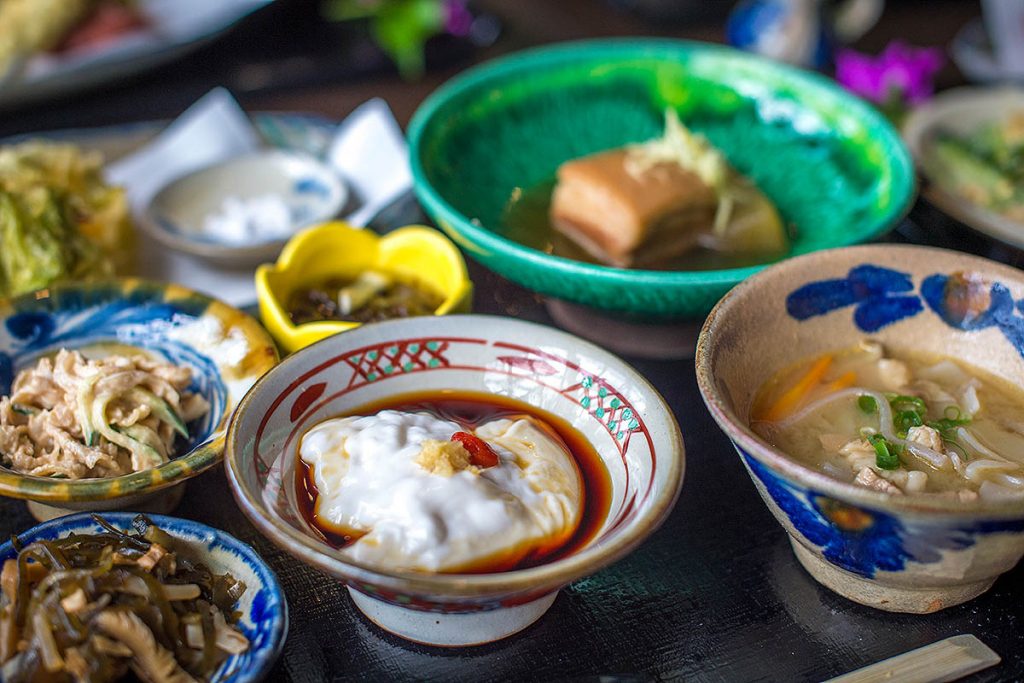When you visit Okinawa, there’s more to enjoy than the beautiful beaches and vibrant culture. One of the island’s most unique and flavorful treasures is Awamori, a traditional Okinawan spirit. Made from Thai rice and distilled with black koji mold, Awamori has a rich history and a distinct taste. Even more special is Kusu—well-aged Awamori that can mature for decades, offering smooth, deep flavors. Whether you’re a curious traveler or a seasoned drink enthusiast, exploring Awamori and Kusu is a must when visiting Okinawa.
What Is Awamori?
Awamori is Okinawa’s signature distilled alcohol. Unlike sake, which is brewed, Awamori is distilled and has a higher alcohol content, typically around 30%. It has been crafted in Okinawa for over 600 years, influenced by trade with Southeast Asia. The black koji mold used in fermentation helps Awamori withstand Okinawa’s hot and humid climate, and gives it a rich aroma and umami flavor.
You can enjoy Awamori straight, on the rocks, or diluted with water. Locals often drink it with ice or mix it with jasmine tea for a refreshing twist.


What Makes Kusu So Special?
Kusu (or Koshu) means “aged liquor” in Okinawan dialect. When Awamori is aged for more than three years, it transforms into Kusu. The longer it’s aged, the smoother and more complex it becomes. Some rare Kusus are aged for 10, 20, or even 30 years in ceramic pots, developing woody, sweet, and nutty notes.
Kusu is often saved for celebrations or given as a luxurious gift. Drinking Kusu is like tasting Okinawa’s history—it’s a slow, thoughtful experience.
Where to Try Awamori and Kusu in Okinawa
1. Shikina Distillery (Naha City)
A small yet beloved place where you can learn about traditional production methods and sample different types of Awamori and Kusu.
2. Zuisen Distillery (Shuri area)
Located near Shuri Castle, Zuisen offers a historical experience and award-winning Kusu. Their 10-year aged Kusu is especially popular.
3. Awamori Museum (Ishigaki Island)
For those visiting the Yaeyama Islands, this museum gives a deeper look into Awamori culture, complete with tastings and displays of old pottery jars.


Tips for Enjoying Awamori and Kusu
Pair with Okinawan food: Dishes like Rafute (braised pork belly) or Goya Champuru (stir-fried bitter melon) complement Awamori perfectly.
Visit a local izakaya: Many traditional pubs in Okinawa serve a wide range of Awamori. Ask for recommendations based on flavor—light, bold, sweet, or earthy.
Bring some home: Many distilleries sell souvenir bottles, including beautifully packaged aged Kusu.
Conclusion
Okinawa’s Awamori and Kusu offer a unique taste of island tradition and craftsmanship. Whether you’re sipping a smooth 10-year-old Kusu or enjoying a casual glass with friends, these spirits bring people together and tell stories of Okinawa’s rich past. So during your trip, don’t miss the chance to discover this flavorful part of Okinawan culture. Cheers—or as the locals say, Karii!
